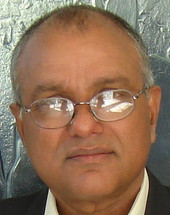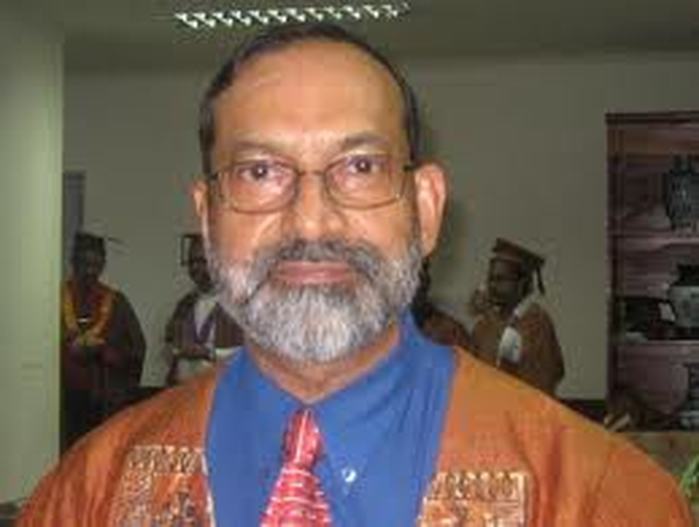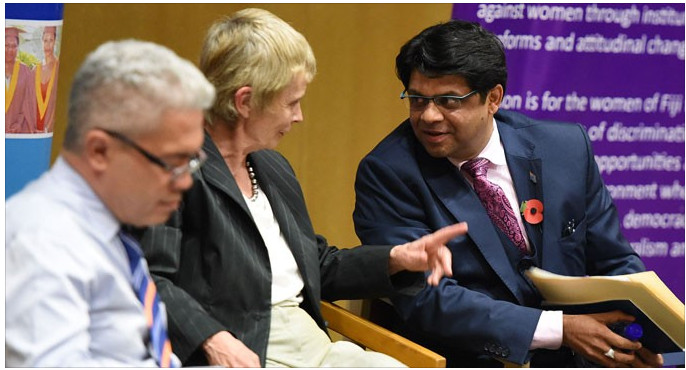 Narsey
Narsey By Professor Wadan Narsey
On the 6th October, Dr Neelesh Gounder (Senior Lecturer in Economics at USP wrote to me:
“Our school is planning to organize a seminar on “Debt, bonds and Deficit” on 14 October. We would like to invite you as the key speaker. I understand you are in Melbourne now. The school is willing to pay your airfare. Please let me know if you are available”.
Also on the panel were going to be a Ministry of Finance representative, and monetary economist Dr TK Jayaraman of Fiji National University, and Dr Gounder himself.
Given that the topic was of great importance to Fiji and the public, and I was already in Fiji, I agreed to take part.
On the 10th October, ominously the day on which Fiji celebrates its “independence”, a distraught and apologetic Dr Gounder rang me up and told me that the seminar would not be going ahead and could give no further explanation.
He simply wrote: “This is to inform you that the School is not going ahead with the seminar as planned. My apologies for any convenience. Thank you once again for agreeing to be one of the panelists”.
Alternative sources told me that the USP Vice Chancellor (Professor Rajesh Chandra) had “refused to give permission” for the panel discussion to be held.
Professor Chandra had also refused the personal request from the Dean of Faculty of Business and Economics (Professor Franco Gandolfi), for the seminar to go ahead.
Why would Professor Rajesh Chandra stop a seminar of such public interest?
Why does a Vice Chancellor of a university have to “give permission” before the Economics Department can hold an academic panel discussion with Fiji citizens taking part?
This is in the same month that an expatriate Professor Cheryl Saunders was allowed to give a public lecture at USP on “Implementing the Constitution of Fiji: challenges and opportunities”. Presentation to a pubic discussion hosted by the USP School of Government, 7 October 2015.
To understand why the USP Vice Chancellor allows an expatriate professor to give a public presentation at USP, while a Fiji citizen Professor Of Economics is censored, the reader may examine the contents of Professor Saunders’ presentation here:
http://www.fijileaks.com/home/professor-cheryl-saunders-on-the-implementation-of-constitution-of-fiji
This presentation was about the 2013 Constitution which has been thrust down the throats of the Fiji population by the military Bainimarama Government without any popular approval or legal legitimacy, having trashed their own Yash Ghai Draft Constitution which had been popularly contributed to.
With no discussion or even mention of the above sorry record, Professor Saunders focused on the problem of “implementation” of the 2013 Constitution.
She left the average member of the public to read between the lines of her contorted academic presentation, if they could and if they had the patience that our leading legal beagles apparently have in abundance.
The USP Vice Chancellor (Professor Rajesh Chandra) also knew of course where his bread was buttered, since also on the panel was the powerful Attorney General and Minister of Finance (Mr Aiyaz Khaiyum) who makes decisions on the funding of USP.
Also on the constitution panel, was lawyer Jon Apted, whose bread is also buttered by USP, as Professor Rajesh Chandra well knows, having used his legal services, often, in ejecting “undesirable” academics from USP.
To better understand why Professor Saunders is perfectly acceptable to Professor Chandra, while Professor Narsey’s views on the recent Bainimarama Government’s refinancing of the $500 million bond issue is not, readers may read my presentation to a USP panel discussion in 2011 (a bygone era of academic freedom at USP?) on the implications of the original bond issue for Fiji citizens’ welfare:
https://narseyonfiji.wordpress.com/2012/03/18/the-bond-issue-when-failure-is-called-success-while-they-dig-our-hole-deeper-2011blogs/
Readers may also read a previous occasion when Professor Rajesh Chandra also stopped Professor Wadan Narsey from being the chief guest and speaking at USP on World Press Freedom Day, organized by the USP School of Journalism.
https://narseyonfiji.wordpress.com/2013/05/10/usp-censorship-continues-world-press-freedom-day/
Readers may also read here, how Professor Rajesh Chandra shamelessly became a stooge for the Bainimarama Government and Aiyaz Khaiyum in getting rid of me from USP.
https://narseyonfiji.wordpress.com/2014/05/15/creeping-totalitarianism-at-usp-an-open-letter-to-usp-council-and-member-governments-15-may-2014/.
Read here how Professor Rajesh Chandra got rid of Professor Biman Prasad:
https://narseyonfiji.wordpress.com/2014/05/30/flawed-appointment-processes-at-usp-letter-to-the-editor-30-may-2014/
Read here how Professor Rajesh Chandra got rid of Professor Susan Kelly:
https://narseyonfiji.wordpress.com/2014/06/30/some-usp-investigations-quick-off-the-mark-letter-to-editor-sent-30-june-2014/
Professor Rajesh Chandra continues to dig deeper the grave for academic freedom at USP, with no challenge from any of the senior USP administrators or even the School of Government, now surely also an oxymoron, like many others at The University of the South Pacific.
USP Council Members also continue their pleasant biennial visits to Council Meetings around the Pacific, with nary a thought for the continued loss of academic freedom at the “premier” university of the Pacific Islands.




